George Grosz Quotes & Sayings
14 most famous George Grosz quotes and sayings (artist). These are the first 10 quotes we have.
“I stood up as best I could to their disgusting stupidity and brutality, but I did not, of course, manage to beat them at their own game. It was a fight to the bitter end, one in which I was not defending ideals or beliefs but simply my own self.”
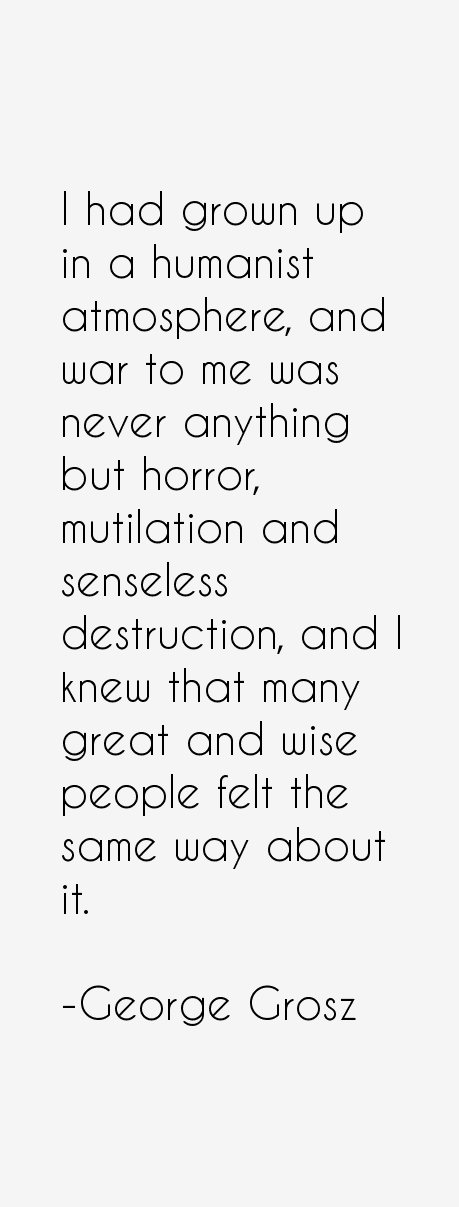
“I had grown up in a humanist atmosphere, and war to me was never anything but horror, mutilation and senseless destruction, and I knew that many great and wise people felt the same way about it.”
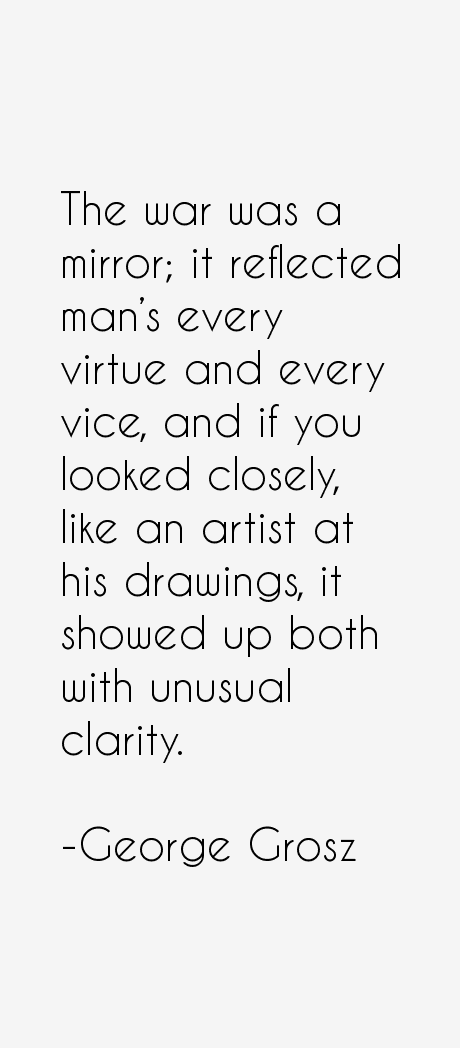
“The war was a mirror; it reflected man's every virtue and every vice, and if you looked closely, like an artist at his drawings, it showed up both with unusual clarity.”
“I don't even like to talk about it. I hated being a number and not merely because I was a very small one. I let them bellow at me for just as long as it took me to find enough pluck to bellow back at them.”
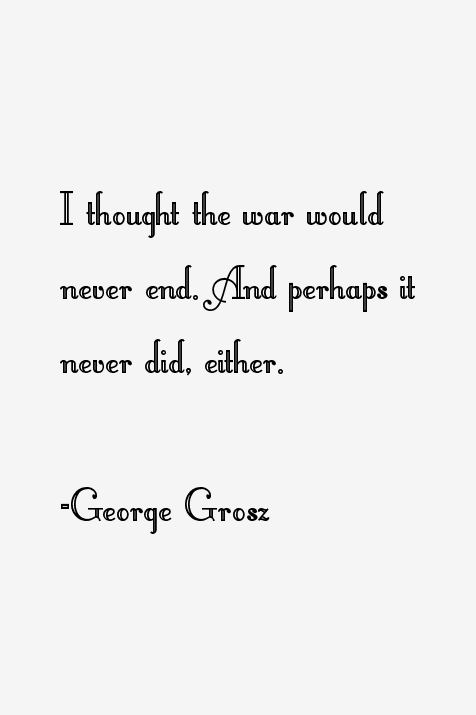
“I thought the war would never end. And perhaps it never did, either.”
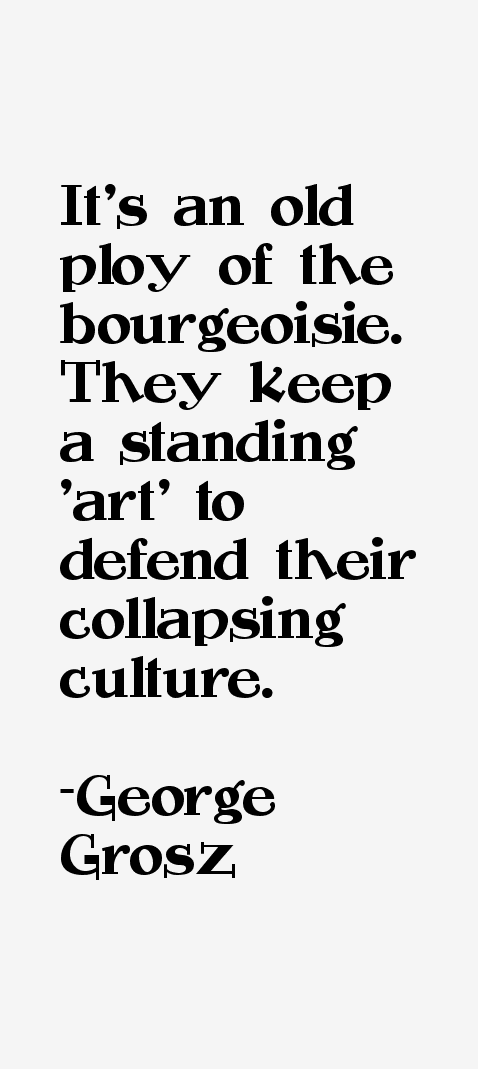
“It's an old ploy of the bourgeoisie. They keep a standing 'art' to defend their collapsing culture.”
“In 1916 I was discharged from military service, or rather, given a sort of leave of absence on the understanding that I might be recalled within a few months. And so I was a free man, at least for a while.”
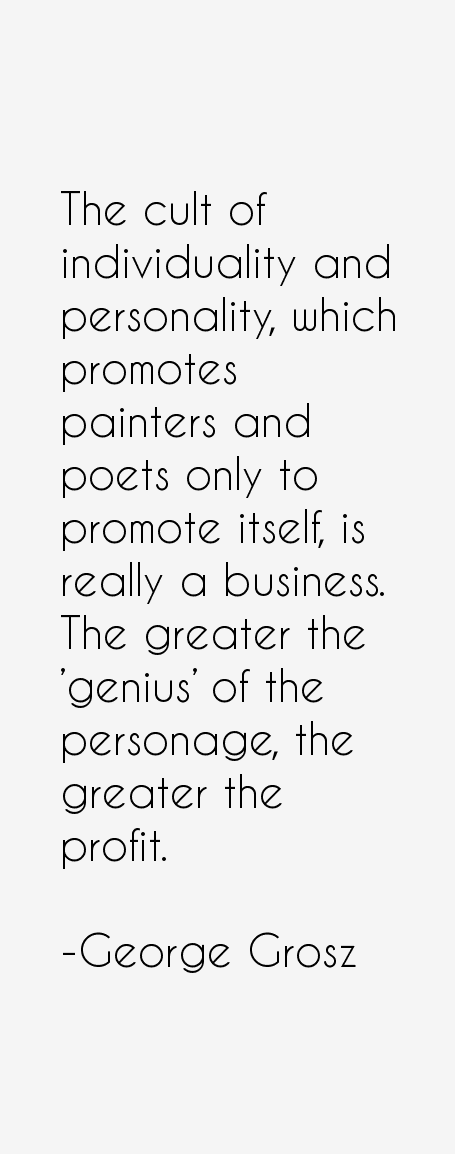
“The cult of individuality and personality, which promotes painters and poets only to promote itself, is really a business. The greater the 'genius' of the personage, the greater the profit.”
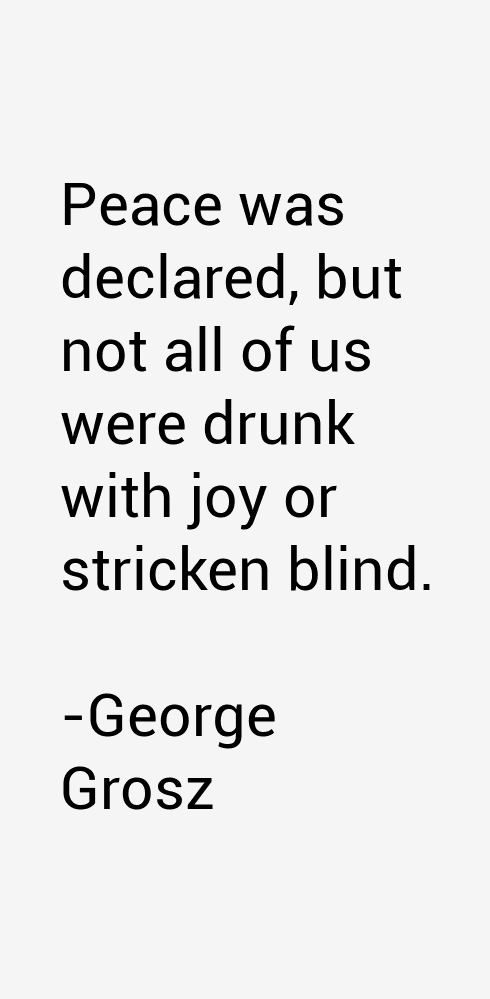
“Peace was declared, but not all of us were drunk with joy or stricken blind.”
“I was disappointed, not because we had lost the war but because our people had allowed it to go on for so many years, instead of heeding the few voices of protest against all that mass insanity and slaughter.”
George Grosz Quotes Rating
No Ratings Yet
Leave A Comment
























